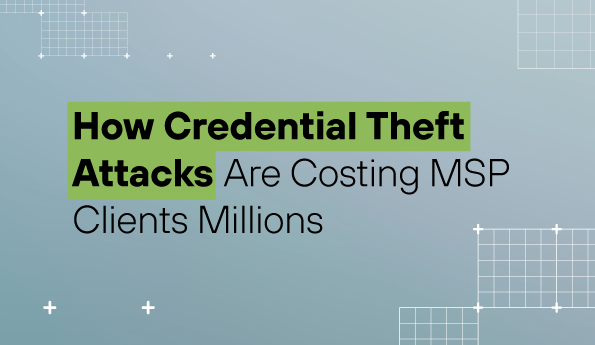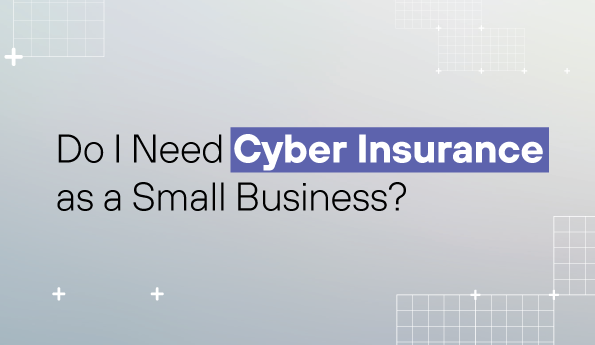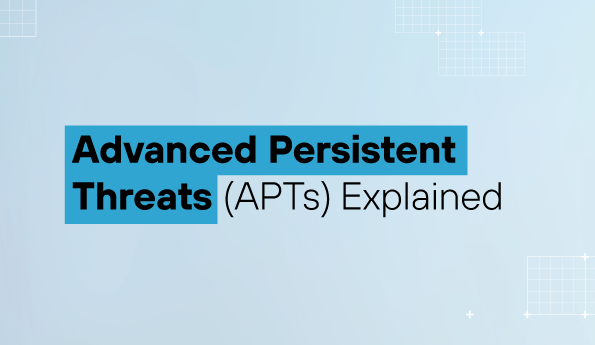Iran & Middle-East Geopolitical Shifts: Emerging Cyber Risks for SMBs


The US Department of Homeland Security recently issued a bulletin warning of potential increases in disruptive cyberattacks from Iranian government-affiliated actors and hacktivists. Although geopolitical events may feel distant from your day-to-day MSP operations, the cyber risks they create are very real—and your clients are counting on you to help them navigate these threats.
The Reality of Nation-State Cyber Warfare
Former CISA Director, Jen Easterly, put it bluntly: "Iran has a track record of retaliatory cyber operations targeting civilian infrastructure, including water systems; financial institutions; energy pipelines; government networks; and more."
This isn't theoretical. We've already seen Iranian actors compromise private security cameras in Israel to gather surveillance data, conduct DDoS attacks against platforms like Truth Social, and launch sophisticated disinformation campaigns spreading false information about resource shortages. Radware estimates there are over 60 hacktivist groups aligned with Iran, and that's just one side of the equation.
The concerning reality is that these attacks often target what security professionals call "low-hanging fruit"—systems and users that are easier to compromise. During times of heightened tensions, attackers exploit both technical vulnerabilities and human psychology to maximum effect.
Why SMBs Are at Risk
The Opportunistic Nature of These Attacks
Unlike sophisticated, long-term espionage campaigns, many of these attacks are opportunistic and move quickly. Attackers focus on disruption rather than persistence, which means they're looking for:
- Exposed internet-facing systems and services
- Unpatched vulnerabilities that can be exploited rapidly
- Social engineering opportunities tied to current events
- Critical infrastructure and high-profile targets for maximum impact
Prime Targets Include:
- Energy, water, and utility companies
- State, local, and municipal governments
- Aviation organizations (especially those serving military or civil functions)
- Financial services institutions
- Healthcare organizations
- Defense contractors and supply chain partners
The Human Element
Attackers weaponize current events and human emotions. They'll sensationalize news to get people to click malicious links promising "latest updates" on the situation. Phishing emails, fake alerts, and disinformation campaigns all target psychological vulnerabilities that emerge during uncertain times. SMBs are particularly vulnerable.
Business Impact: What's Really at Stake
When these attacks succeed, the consequences extend far beyond temporary inconvenience:
- Data and System Integrity: Attackers focus on data exfiltration, ransomware deployment, and destructive malware. Your clients could lose sensitive information, intellectual property, or core system functionality.
- Compliance and Regulatory Violations: Data breaches trigger reporting requirements and potential penalties, especially for organizations in regulated industries.
- Reputation and Trust: Being targeted as part of a hack-and-leak campaign or suffering a public defacement can damage client relationships and market position.
- Operational Disruption: DDoS attacks and system compromises can halt business operations, affecting revenue and customer service.
Address the Threats Head On
Take Proactive Actions to Stay Ahead of the Threat
Whether you’re an MSP delivering cybersecurity solutions to clients or an SMB, don’t wait to address the heightened risks. Everyone should be implementing proactive protection to mitigate as much risk as possible. Awareness and preparation are the best defenses for providers and businesses alike.
Assess and Harden Exposed Assets
- Review all internet-facing systems and services
- Apply the principle of least functionality by removing unnecessary services
- Pay special attention to internet-facing RDP and management interfaces
- Ensure systems are patched regularly to limit attack surface area
Focus on Crown Jewel Protection
Identify and focus on the most critical assets and data, then apply enhanced security controls:
- Implement multi-factor authentication across all systems
- Use phishing-resistant MFA where possible
- Apply network segmentation to limit lateral movement
- Ensure privileged access is properly managed and monitored
- Strengthen Monitoring and Response
- Ensure 24x7x365 monitoring capabilities are in place
- Respond immediately to MXDR requests for attack confirmation
- Review and test business continuity and disaster recovery protocols
- Verify backup systems are active and recent
What Everyone Can Do Right Now
For SMBs/End Users:
- Be skeptical of unusual emails, texts, QR codes, and forms—always verify the source
- Go directly to trusted news websites rather than clicking links in messages
- Be cautious about sharing information online or on social media
- Report suspicious activity immediately
For MSPs and SMBs:
- Use strong passwords and follow least-privilege principles
- Keep systems patched and updated
- Train employees on current threat awareness
- Review and update incident response plans
How Todyl Protects Against These Threats
At Todyl, we're monitoring this situation closely and have multiple layers of protection in place:
- Real-Time Threat Detection: Our Threat Research and Detection Engineering Team works with our MXDR team to rapidly identify and respond to new threats across the MITRE ATT&CK framework.
- Automated Response: As new indicators of attack are identified, we immediately push updated rules to our SIEM detection engine, SASE, and Endpoint Security platforms to protect against emerging threats.
- Comprehensive Coverage: Our platform delivers protection through multiple vectors—endpoint detection and response, network security, identity monitoring, and 24x7x365 managed response.
- Defense-in-Depth: We use a combination of point detections, correlation rules, machine learning models, behavioral analysis, and anomaly detection to elevate security profiles and catch threats others miss.
Moving Forward
Geopolitical tensions create heightened cyber risk that can affect all of us, regardless of our political views or geographic location. As an MSP, you're on the front lines of protecting businesses and communities from these threats. As a business you need to stay vigilant to protect yourself from potential attacks.
The key is proactive communication and preparation. Cybersecurity isn't just about technology—it's about business resilience and continuity.
If you have questions about specific threats, need help implementing additional protections, or want to discuss how Todyl's capabilities can strengthen your security posture, reach out to us. We're here to help you protect what matters most.
See Todyl in Action
Learn how you can protect what you built.
Stay on the Cutting Edge of Security
Subscribe to our newsletter to get our latest insights.



